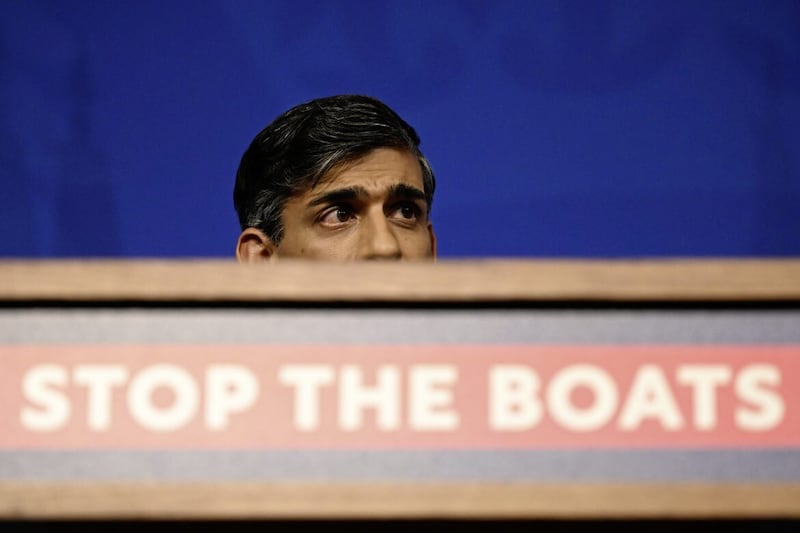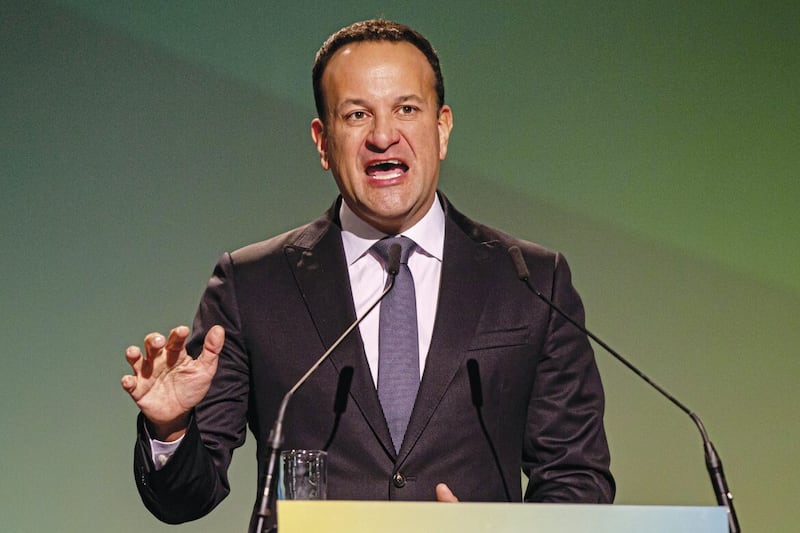When I read on Monday morning that Bono and Edge from U2 had added a new verse to their song “Sunday Bloody Sunday,” my first response was “a day late and a dollar short.”
After the song was released in 1983, the band clarified what the song was – and more importantly – was not about. Larry Mullen Jr said at the time that people believed the song was about the events of Bloody Sunday in Derry in 1972 but: “That’s not what the song is about. That’s an incident, the most famous incident, in Northern Ireland and it’s the strongest way of saying, ‘how long? How long do we have to put up with this?’ I don’t care who’s who, Catholics, Protestants, whatever. You know people are dying every single day through bitterness and hate, and we’re saying why? What’s the point?”
The band’s insistence that the song was not a rebel song, as Bono said in his introduction to it on the “Under a Blood Red Sky” live album, didn’t prevent it from becoming an anthem.
The Cranberries were an amazing band and Dolores O’Riordan had a captivating voice, but their song Zombie was in a similar vein. It’s another one-dimensional song that present the conflict as a nationalist or republican problem and fails to address the role of the state in terms of the killings and collusion it was responsible for. It’s symptomatic of the prism of Section 31 through which much of what was happening in the north of Ireland was reported in southern media.
There is a cringe-inducing video clip of a performance of the song at a U2 concert where Bono spots a sign saying “SF U2” and proceeded to berate the fan holding it for his support of Sinn Féin and then goes on a rant about violence. Just republican violence, that is. He didn’t mention state violence at all. So vitriolic was he in his condemnation, he seems to have forgotten where the band was and that the SF stood for San Francisco, where the concert was taking place.
It seems to be that Irish popular musicians are reluctant to call the British state to account. Contrast that with songs by British artists such as Bananarama’s “King of the Jungle” which recalls the murder of their roadie, Thomas “Kidso” Reilly who was shot in the back by Private Ian Thain in 1983. There is no ambiguity in the lyrics, no doubt of the condemnation and horror at the murder of their friend.
Yoko Ono tweeted on January 30: “Respectfully remembering those who died and were injured on Bloody Sunday, and all families and friends affected by the tragedy.” She co-wrote another song entitled “Sunday Bloody Sunday” with John Lennon, published in July 1972, whose lyrics are in stark contrast to Bono’s version. “Is there anyone among you dare to blame it on the kids? Not a soldier boy was bleeding when they nailed the coffin lids.”
Unlike Bono, it didn’t take John Lennon two public inquiries, an apology from a British prime minister and 50 years to find his conscience when it comes to Bloody Sunday.
For many years, the Bloody Sunday commemoration was attended by the families and a few thousand supporters.
Sometimes just a few hundred, depending on the number of RUC checkpoints on the Glenshane Pass and at Drumahoe set up with the purpose of preventing people getting into the city to attend. This year was the first attendance by the taoiseach, who laid a wreath during the memorial service. Derry’s famous daughters and sons came home to stand in solidarity with their neighbours. The courage and determination of the bereaved and injured of Bloody Sunday created this. They have never allowed anyone to dim their light.
U2’s song is a stunning piece of music with martial drums and an instantly recognisable guitar riff and it became an anthem because of those, and because so many people hoped that it marked an acknowledgement of the horrors that had taken place.
But as someone close to the Bloody Sunday families said to me: “Bono spoiled the soup. He realised what he had written WAS a rebel song and then he went all-out to deny that it was about what happened on Bloody Sunday.” The result of that denial was to create a confusion around the legitimacy of the families’ campaign for justice. Perpetuating the false narrative of a one-sided conflict or that there was wrong on both sides when describing a song explicitly about state-sanctioned murder might have struck the expected tone in south County Dublin, but in Derry it hurt and upset many people.
A new last verse which acknowledges the murders that took place on Bloody Sunday is to be welcomed. It would sound more sincere if it was accompanied by an apology that it took so long.






